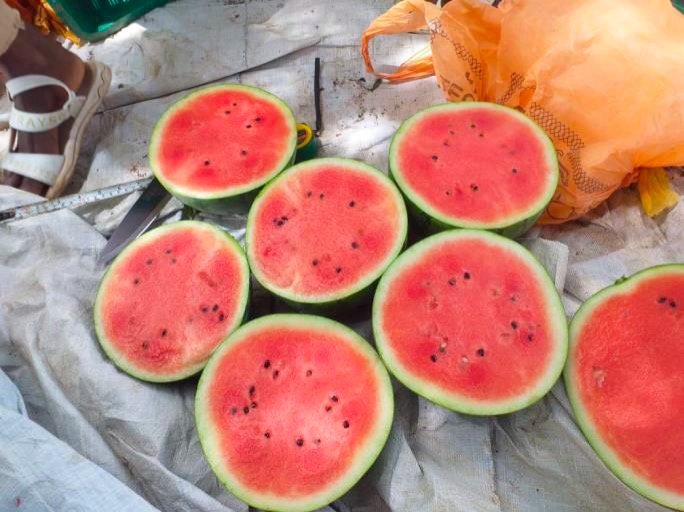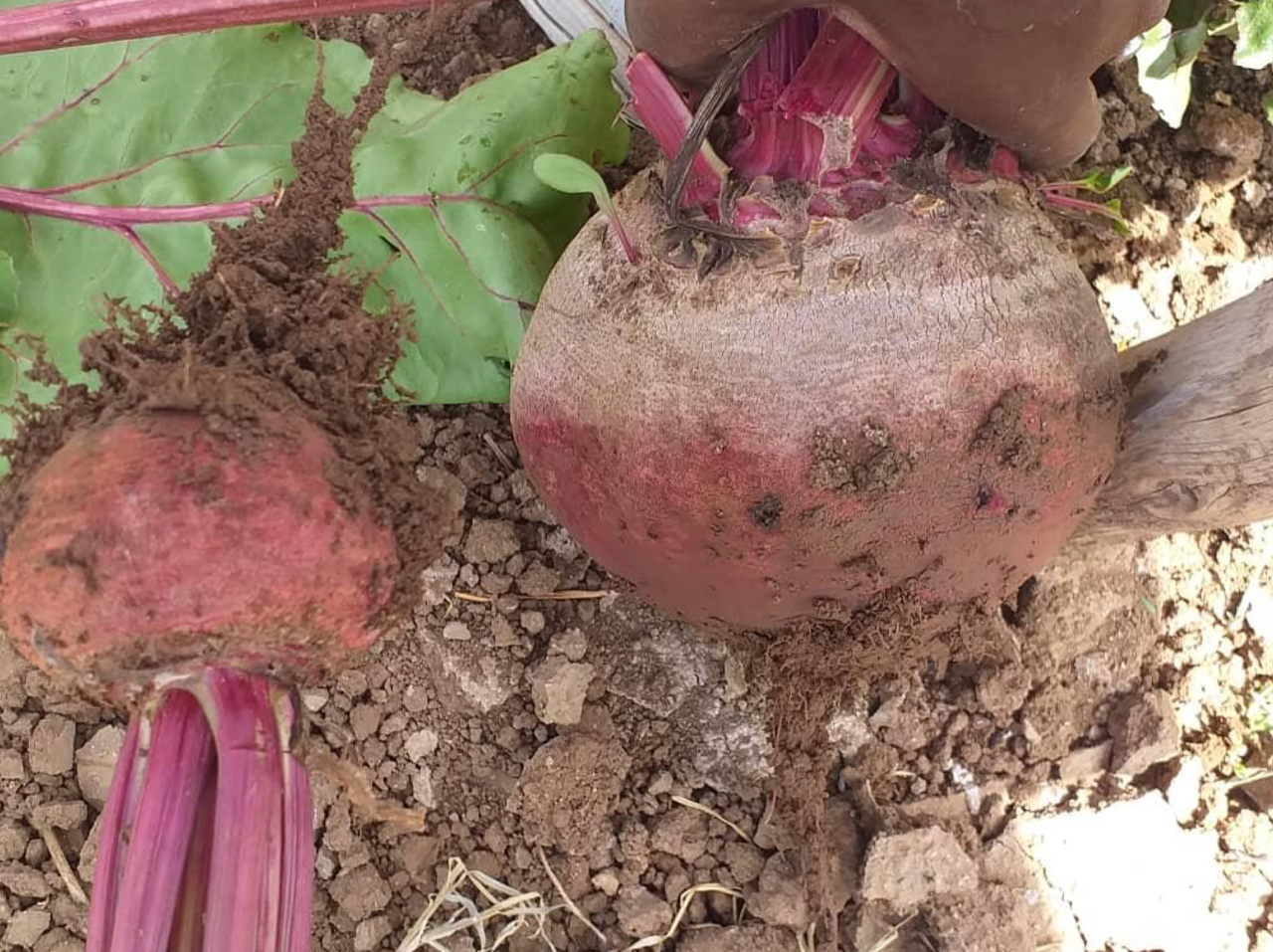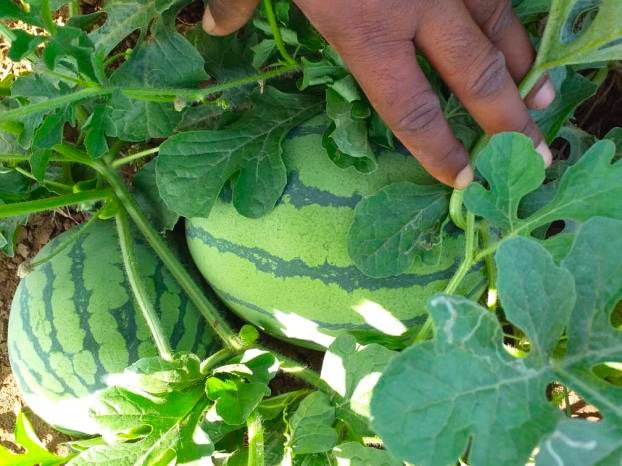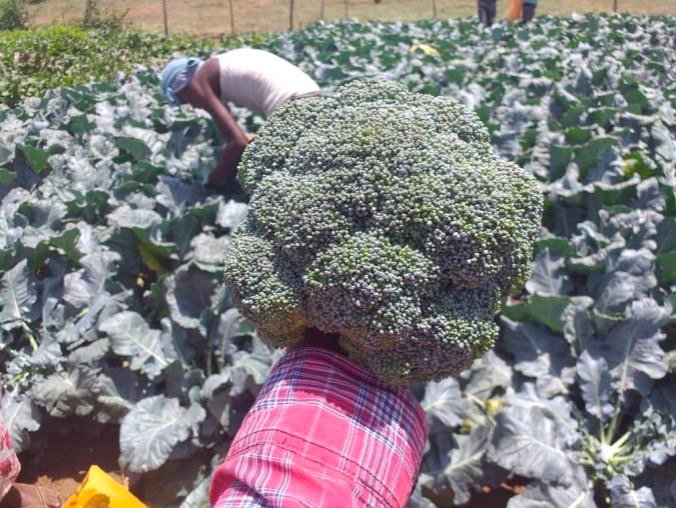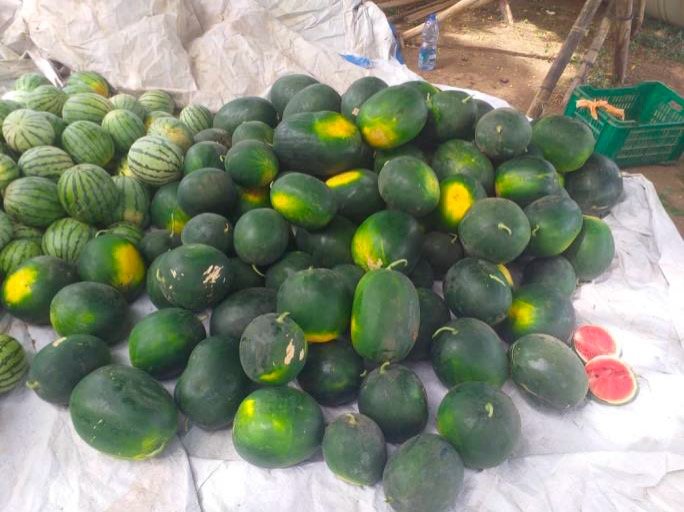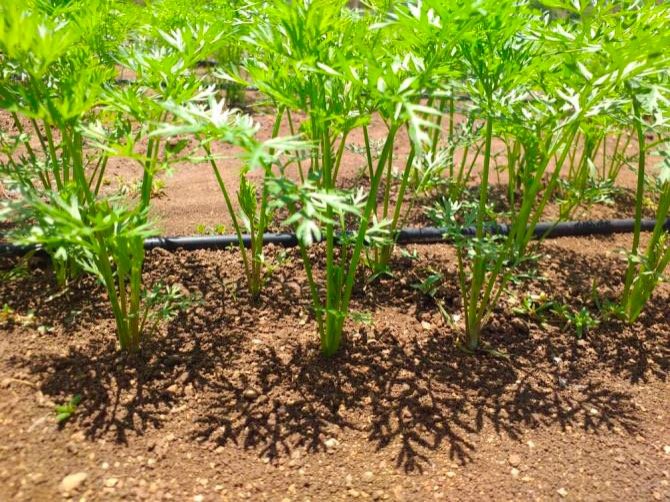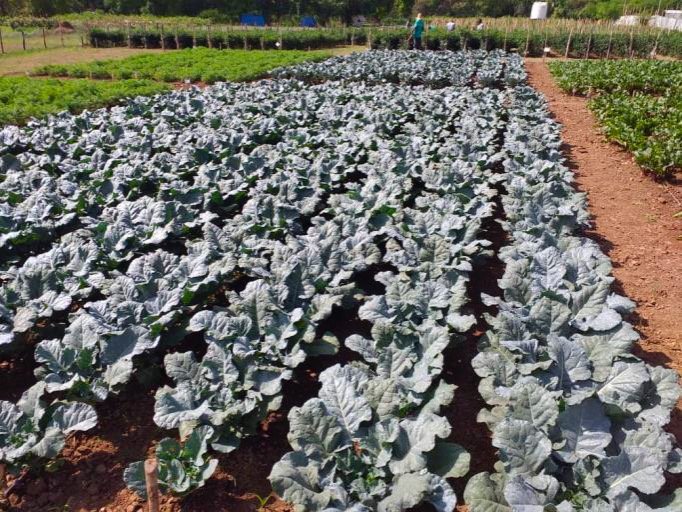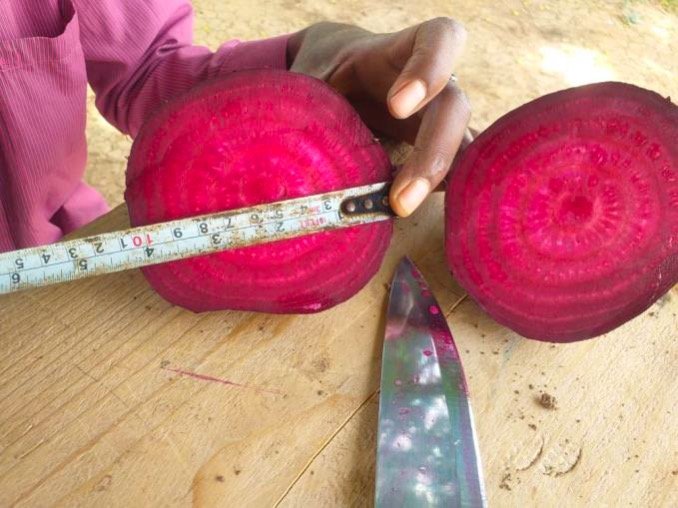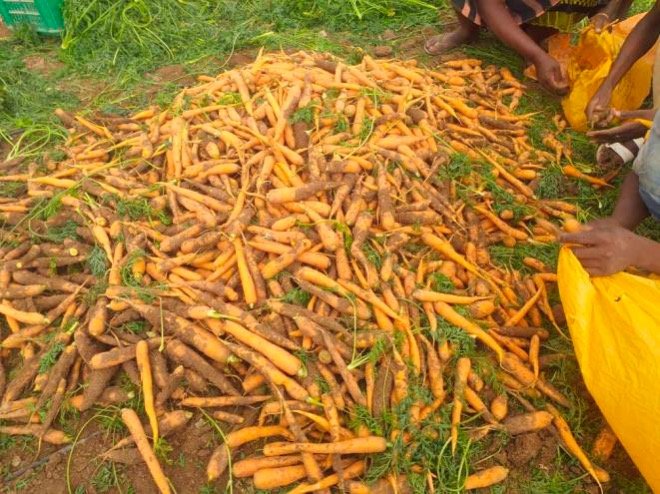Seeds of Hope Ethiopia
Selection of the best varieties of new vegetable crops and training of farmers.


Goal
Introducing new vegetable crops such as peppers, (water) melons, carrots and lettuce with the aim of achieving a wider range of vegetables. Comparison trials with modern varieties are carried out and local advisors will train the farmers.
Partner
Fair Planet is an Israeli foundation with experience since 2014 in variety testing and farmer training.
Local partner
Haramaya University Ethiopia.
Location
Haramaya University and Dire Dawa (360 km east of Addis Ababa) Seeds of Hope project in cooperation with Fair Planet in Eastern Ethiopia
Updates
February 2024: Update third and final project-year of Fair Planet
The focus of the final stage of this Phase I project in 2023 has been on variety trials with 5 crops. Watermelon and squash in the lowland area of Dire Dawa and cauliflower, beetroot and carrot in the highland area of Haramaya.
Dire Dawa has a relatively warm climate - around 30-33 C during the day and 16-23 C at night. In 2023 rainfall was more frequent than usual. Due to good agriculture practices most of the crops performed well.
The production test of 4 squash varieties went very well and high-quality varieties with good yield were identified. Although squash is not a major vegetable, the Bureau of Agriculture is convinced that there is a high potential in squash consumption.
The selected watermelon varieties appeared to have a low virus resistance and collapsed due to a virus infection. Trials will be repeated with virus resistant varieties.
In Haramaya highlands the weather is cooler than in Dire Dawa.
Day temperatures are around 25-28 C and night temperatures 10-14 C. The rainy season is more intense than in Dire Dawa. Therefore, the Haramaya region is more suitable for cold weather crops such as carrot, beetroot and cauliflower.
Although lettuce and broccoli have been very successful, farmers have no willingness to grow these crops and it was decided not to continue. They will remain in demonstration plots and are available for farmers that may show an interest to grow them in the future.
Two carrot varieties, 3 beetroot varieties and 3 cauliflower varieties were found to be suitable for the region with a good yield and quality and will advance to the demo plots and farmers’ fields.
FairPlanet and Seed4Farmers started discussion about a Phase II project for another 3 years with a strong focus on training and extension of farmers in several villages.
October 2022: Update second project year Fair Planet
The "Seeds of Hope" project has entered its second project year and in 2022, fully on schedule, important follow-up steps have been taken.
Of the 51 varieties provided by the cooperating seed companies, a total of 34 varieties of 8 crops were evaluated at 2 sites.
In the lowlands of Dire Dawa (1250 meters altitude), watermelon, melon and bell pepper were tested and in the highlands of Haramaya (2050 meters altitude) the crops lettuce, broccoli, cauliflower, beet and carrots. Local varieties were always included for comparison.
Besides the use of suitable varieties, optimal growing conditions are also very important. An efficient drip irrigation system was used for wetting, and fertilizers and crop protection were applied as needed. The drip irrigation is new to the farmers. In this way, a good picture of crop potential was obtained.
With the exception of bell pepper, excellent performing varieties were identified for all crops. Whereas beet, carrots and watermelon are already very popular, there is now little demand for the other new crops. As a result of these positive trials, interest in new crops has now increased significantly among local partners.
Plans for new crop season 2022-2023
At the end of the second year, it was decided to stop bell pepper and melon for the time being and to continue with broccoli, cauliflower and lettuce in season 2022-2023 for further evaluation.
The new varieties of the well-known crops watermelon, carrots and beet, will be promoted. Larger trial fields will be established to demonstrate the potential for local farmers.
The crop production manuals will be further developed and optimized with many illustrations and tailored to local capabilities.
The local partners and model farmers will be further trained to produce the selected crops on the demonstration fields.
December 2021: Update Fair Planet
Project Seed of Hope on its way and first trials with new crops promising! Despite the Covid-19 pandemic, from March to June 2021 the Fair Planet team with the Haramaya University were able to complete a first cycle of planting of the new crops broccoli, beetroot, watermelon and carrot. These demonstration trials were carried out at the "Toni" research Center in Dire Dawa by the local staff to test both environmental conditions and market demand.
Broccoli is not (yet) a common crop in Ethiopia, although the government is advocating the crop due to its health benefits. First markets may be very high-value niche markets like restaurants and hotels. The good yield and quality results, together with an explanation on cooking the broccoli heads, already lead to an increase in demand for the crop.
Although Beetroot is not common in Dire Dawa, the trial with 2 varieties gave good results and yielded directions how to optimize the production protocol.
Both watermelon varieties tested gave an excellent yield and quality performance. With 1000 fruits/0.1ha an extremely high revenue for farmers can be obtained. Focus is needed on screening for disease tolerant varieties as well as on best-practice trainings.
Carrot is a new crop for the region with a national market demand. For a first carrot production the results were very good, but the direct sowing methodology needs adjustment to fit the local conditions.
The data collected from the production trials was used to prepare crop production guidelines for the 4 new crops. These guidelines will be further developed during the coming season and used as training tools in the next stage.
The project received a very positive response from the partnering seed companies who have made available a total of 51 varieties of 13 crops. These varieties are evaluated for performance in both Haramaya (October 2021) and Dire Dawa (February 2022). The most suitable varieties will be selected for on-farm trials in the second project year.
October 2020: Seeds of Hope project in cooperation with Fair Planet in Eastern Ethiopia
Seed4Farmers came in contact with Fair Planet (FP) from Israel through Vincent van Bentum. FP has achieved a significant improvement in the yield and quality of vegetable crops and thus increased the income of the farmers. Since 2012, FP has gained experience in testing modern varieties of tomatoes, hot peppers, onions and cabbages and in training farmers in growing these crops. FP asks a range of seed companies to supply varieties that may be suitable for the local conditions in Eastern Ethiopia. The variety trials are conducted in cooperation with Haramaya University. Local agricultural advisors train the farmers to get good results with the modern varieties.
These activities fit well with the objective of S4F. In several discussions with the founder Shoshan Haran, we have agreed on a three-year new project starting in January 2021 that fits well with FP's previous activities. New crops will be introduced such as: sweet pepper, (water) melons, carrots and lettuce, with the aim of realising a wider range of vegetables.
